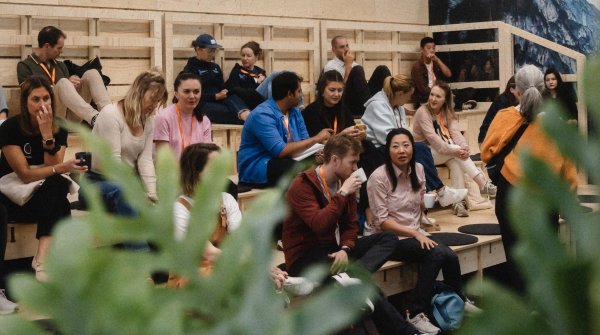World Earth Day has become more than just a symbolic gesture, it’s a yearly reminder that the time for sustainable transformation is now. With environmental pressures mounting and public expectations rising, Earth Day 2025 urges every industry to reflect, rethink, and realign. And for the sports industry, this means a deeper commitment to how we create, consume, and compete. Whether you’re a brand, a supplier, or a changemaker in the sports ecosystem, the message is clear: sustainability is no longer optional, it’s a non-negotiable expectation. At ISPO 2025 , we’re taking this movement seriously – and taking it further.
Athletes, consumers, and regulators alike are pushing for more transparency, circular systems, and real action on climate impact. Yet, navigating the path forward is complex: rising costs, stricter regulations, and intricate supply chains all present serious hurdles. But these challenges also spark innovation. Long-term success now depends on sustainable strategy – and those who adapt, lead.
That’s why ISPO wants to provide the platform where the industry aligns, offering strategic guidance, cross-sector insights, and the momentum needed to turn sustainability from ambition into action.
As a holistic platform for the global sports industry, ISPO 2025 is the place where sustainability turns into strategy. We bring together brands, innovators, material experts, and thought leaders – to network, share ideas, and co-create solutions that are not just green, but game-changing. In line with the Earth Day mission, ISPO 2025 puts sustainability front and center: across every touchpoint of the event, you’ll discover new technologies, sustainable materials, and business models that shape the future of sports. From cutting-edge materials in the Material Lab and actionable insights at the Sustainability Solutions to future-focused talks on the Green Stage, the event offers practical tools and inspiration for driving real change. If you're driving innovation yourself, you can even submit your product or idea for one of the various ISPO Awards – and gain international recognition.
At ISPO 2024, the conversation around sustainability was already in full swing. From practical advice to visionary thinking, these 30 voices from industry leaders, innovators, and experts revealed what’s driving the shift in the sports sector. Their insights cover the latest trends, the challenges ahead, and actionable strategies to help businesses thrive in this evolving landscape. Dive into their perspectives to learn how your business can not only keep up with sustainability demands but also lead the charge for a greener, more sustainable future in sports.
The insights from these 30 experts make one thing crystal clear: the future of the sports industry depends on bold action, honest collaboration, and forward-thinking solutions. World Earth Day is a powerful reminder – but the real work happens every day, in every decision we make. Whether you're a brand innovator, supply chain strategist, material pioneer, or simply passionate about shaping a greener future, ISPO 2025 is your platform to lead, connect, and create impact. Bring your ideas, share your story, and maybe even take home an ISPO Award for your efforts.
Save the date: 30. NOV. – 02. DEC. 2025.
 SustainabilityReady for the Green Deal? An Update for the Sports Industry
SustainabilityReady for the Green Deal? An Update for the Sports Industry
- Awards
- Mountain sports
- Bike
- Fitness
- Health
- ISPO Munich
- Running
- Brands
- Sustainability
- Olympia
- OutDoor
- Promotion
- Sports Business
- Textrends
- Triathlon
- Water sports
- Winter sports
- eSports
- SportsTech
- OutDoor by ISPO
- Heroes
- Transformation
- Sport Fashion
- Urban Culture
- Challenges of a CEO
- Trade fairs
- Sports
- Find the Balance
- Product reviews
- Newsletter Exclusive Area
- Magazine



